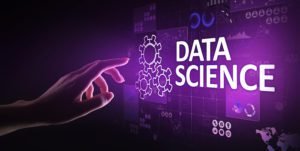Data science and machine learning (ML) have become key determinants of business success. While data science deals with collecting, analysing and drawing meaning from data, machine learning focuses on building models that use data to make informed predictions. Data science involves various fields and techniques, including machine learning. Data scientists use ML models to improve data analysis and forecasts.

Data science and machine learning courses have become increasingly popular, with the demand for skilled professionals rising. In addition to having the relevant knowledge and skills, data scientists and ML experts must be quick to identify challenges and tackle them.
This article will look at the top data science and ML challenges and how professionals can deal with them.
What are the major challenges faced in this field?
Let’s discuss some significant challenges data science and ML professionals face.
Data preparation
Collecting, organising, cleaning and analysing data is extremely tedious. Different platforms require the data to be stored in specific formats using various codes. One has to keep in mind that there should be no change in the original dataset while the analysis is being carried out. This is a major data science challenge.
Lack of appropriate data
The unavailability of proper datasets can often turn out to be problematic. Too small a dataset can result in sampling bias. To predict future performances based on past information, efficient datasets are necessary, and the inability to extract such data can often become a challenge.
Incomplete dataset
Complete and balanced data is necessary to build machine learning models, However, if an incomplete dataset is used, it might lead to inaccurate predictions and erroneous conclusions.
Missing values
If a dataset has a lot of missing values, then it becomes difficult to work with the data since many programming languages fail to give accurate results in this case. A non-stationary dataset might pose a challenge since it becomes complex to work with.
Data protection
The threat of cyber-attacks calls for secure data storage to prevent the leakage of sensitive information. Due to some organisations’ stringent data protection measures, accessing it becomes difficult for data scientists. Even after accessing, working on this data while conforming to these additional restrictions often becomes challenging for them.
Data inaccuracy
If a model has been built with incorrectly labelled data, then it will certainly give incorrect results once new information has been incorporated. Therefore, ensuring the accuracy of results using proper data labels and variable types often proves quite daunting.
Data inconsistency
Consistent data is a must to build an appropriate machine learning model. Any inconsistency in the data can lead to false conclusions. Thus, the data should be free from bias and there should be no inaccurate data sources when building ML models.
How can these challenges be tackled?
Several measures can be taken to tackle the challenges that have been discussed above:
-
Setting a definite target
Setting the primary purpose behind the data collection and analysis is essential as it will help to make the process more precise and focussed. Once the research question has been defined, it becomes easier to carry out data operations and derive insights.
-
Cleaning the data to minimise errors
While cleaning the data, it is essential to reduce errors as much as possible, omit missing values or substitute them with other appropriate values and eliminate duplicate observations. It is also vital to detect unnecessary trends and anomalies in the dataset.
-
Checking the linearity of data
It is crucial to check for non-linear relationships in the collected data and make them linear if needed. Checking data linearity will provide information on whether the data is sufficient or if some more variables need to be included.
-
Efficiently managing data
Efficient data management and integration tools must be utilised to ensure the availability of appropriate data required for the study. Data must be collected from reliable sources and appropriately sorted.
-
Implementing data governance
Data management and model governance processes must be set up to improve model performance, precision and accuracy. If required, regular model re-training is a must by setting up relevant tools and processes.
Conclusion
There are many challenges one might encounter in this field. However, it does not deter aspirants from pursuing data science and machine learning courses to join this thriving industry. In addition to imparting theoretical knowledge, these courses encourage hands-on experience working with various tools necessary to tackle these challenges successfully.
If you are interested in data science and machine learning, then check out the Imarticus IIT Roorkee data science course. The 5-month certificate programme in data science and machine learning is designed by eminent IIT faculty members. It will teach you the fundamentals of data science and machine learning while training you to apply this knowledge to real-world problems.







